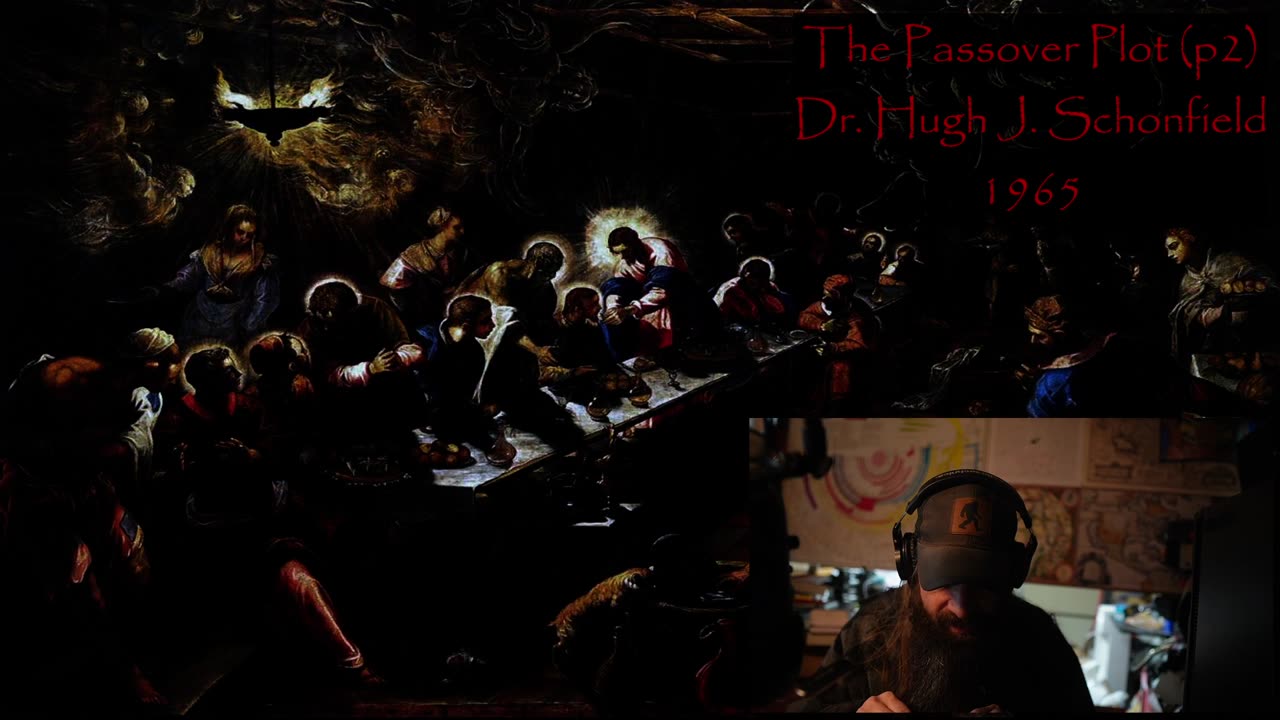Premium Only Content

The Passover Plot (p2) - 3.1
The Passover Plot (p2) - 3.1
This video discusses the pre-Christian Jewish concepts of the Messiah, focusing on various figures such as the suffering servant from Isaiah, the collective son of man from Daniel, and the Messianic link to Joseph. It highlights the relationship between Jewish teachings and later Christian beliefs, particularly emphasizing the fluid Messianic interpretations present in different sectarian writings. The discussion includes insights from historical texts and prophecies, reflecting on how these ideas acted as a foundation for the Christian understanding of the Messiah and his purpose.
Key Points:
Messianic Expectations
At the time of Christ, the prevailing belief among the Jewish people was that the Messiah, the Son of David, would be a righteous king. However, this concept was complicated by other expectations, such as the suffering servant of Isaiah, which represented a different kind of Messiah.
Role of the Righteous
The video outlines how the suffering servant or righteous man was seen to fulfill a role of atoning for sins through their faithfulness and suffering. This belief also extended to figures within sectarian Judaism who were thought to bear the burden of the nation's failings.
Influence of Joseph in Messianic Thought
The patriarch Joseph's experiences of suffering and subsequent elevation were viewed as prophetic and emblematic of the suffering just one. This narrative possibly gave rise to the figure of the messiah Ben Joseph within Jewish thought.
Fluidity of Messianic Identity
Messianic identities were not rigid and were subject to reinterpretation and exchange among different groups, manifesting in figures such as David and the suffering servant of Isaiah. Such transformations illustrate the way prior beliefs were assimilated into the emerging Christian narrative.
Connections to Ancient Culture
The discussion includes references to the integration of pagan fertility cult figures like Adonis into Jewish Messianic thought, suggesting that concepts of death and resurrection were present in the shaping of Messianic expectations leading to Christianity.
Jewish Mysticism and the Son of Man
The 'Son of Man' concept, derived from the book of Daniel, reflects deep Jewish mystical teachings and is linked to the archetypical man believed to embody the ideal Israelite characteristic. This connection has close ties to the prophetic imagery that would later influence Christian doctrine.
Eschatological Prophecy
The video references eschatological themes where prophetic figures such as the teacher of righteousness were expected to arise in the last days, demonstrating a continuum in Messianic prophecy that later influenced how Jesus was perceived in relation to Jewish expectations.
-
 2:37:43
2:37:43
Flyover Conservatives
1 day agoDR. KIRK ELLIOTT | Deep Dive: Tariffs, Tech, and Total Economic Warfare – Who Wins and Who Loses? | In Studio - FOC Show
73.9K4 -
 3:12:37
3:12:37
Danny Polishchuk
12 hours agoTariffs and Trade Wars + Nick Rochefort | Low Value Mail #136
54.5K3 -
 2:04:40
2:04:40
I_Came_With_Fire_Podcast
14 hours agoCartels vs The United States, Fentanyls 2 Front WAR, and FTOs
31.2K -
 4:54
4:54
CryptoWrld
15 hours ago $1.94 earnedCrypto Startup Launches Tokenized US Treasury Bonds
31.1K4 -
 2:29:15
2:29:15
We Like Shooting
21 hours ago $1.25 earnedWe Like Shooting 596 (Gun Podcast)
22.5K -
 54:43
54:43
Kimberly Guilfoyle
14 hours agoThe Trump Effect: Mexico Folds, Live with Dinesh D’Souza & Chuck DeVore | Ep.193
106K34 -
 1:20:47
1:20:47
Redacted News
13 hours agoMexico CAVES to Trump over tariffs, USAID Shutdown, & Zelensky loses $200 billion | Redacted Live
188K467 -
 1:02:29
1:02:29
The StoneZONE with Roger Stone
9 hours agoIs GOP Sen. Bill Cassidy Playing Politics with RFK Jr. Vote as U.S. Faces Public Health Crisis?
37.5K5 -
 1:10:30
1:10:30
BIG NEM
12 hours ago📢 THE JOLLOF-OFF: The Battle for West African Cuisine! 🇳🇬🔥🇬🇭
31.2K4 -
 54:58
54:58
LFA TV
1 day agoThe Trade War Begins | TRUMPET DAILY 2.3.25 7pm
57.2K27